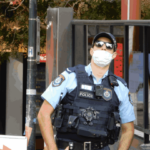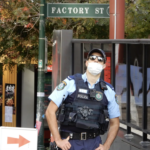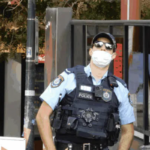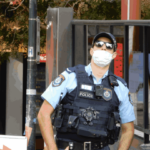NSW Government to Revoke and Refund Remaining 23,000 COVID-19 Fines

The NSW government will revoke and repay over 23,000 fines issued during COVID-19 after garnering new and eye-opening legal advice that has changed its outlook on penalty notices.
Several tens of thousands of fines for allegedly failing to comply with a public health order were issued during the COVID-19 pandemic.
However, Revenue NSW withdrew more than 36,000 of those fines in 2022 after acknowledging the penalty notices did not comply with the formal requirements of the Fines Act 1996, which requires these documents to contain a number of particulars including those specifying the specific conduct alleged.
At the time, Revenue NSW decided not to revoke the remaining 23,000 COVID-19 fines on the basis they were sufficiently particularised.
But the government department now accepts it did not act in accordance with the law, and has decided to formally revoke the fines and issue more than $5 million in refunds.
COVID Fines Disproportionately Issued Against Our Most Vulnerable
During the pandemic, COVID fines were disproportionately issued against the homeless, those in less affluent areas (which were regularly targeted by police) and First Nations people– many of whom had no choice but to remain in areas in formal contravention of COVID directions.
Many of these people will now be able to get their money back – and justifiably so.
Unregulated Pandemic Response
So, what does the issuance of fines say about the country in the first place? Well, it highlights how Australia made rash measures that did not positively affect the economic, social, or geographical standing of the country during the height of the pandemic.
This was exacerbated by a ‘flurry’ of law-making, a massive increase in the number of Covid fines during the Delta wave, and mixed messaging communicated by those in the NSW Government and NSW Police Force. This confusing messaging, which often contradicted the actual laws and regulations, led to uncertainty and frustration among the public.
The inconsistencies, hundreds of thousands of dollars of fines, and lack of clarity regarding what was considered acceptable behaviour in the community led to a law-and-order issue across the state. NSW citizens found themselves in contact with the authorities for behaviour that would previously never ‘get them in trouble’, leading to a lack of compliance and overly strict government regulations that set up the community for failure.
Previous Attempts to Revoke Fines
Due to the stark increase in the number of Australian residents who were unfairly punished for doing everyday activities previously acceptable—such as getting fresh air, visiting friends, going for a walk, doing outdoor exercise, or going shopping—numerous individuals were encouraged to seek legal advice to waive fines that would exacerbate an already-tough economic situation.
The New South Wales justice system considered revoking the 45,0000 still-existing fines in 2022 to alleviate pressure on the economy.
Other states, like Queensland, focused on fixing the inconsistent border rules during the COVID-19 pandemic to abet confusion and prevent unnecessary punishments. Furthermore, legal groups in Victoria pushed the Victorian Government to dismiss all related fines regarding COVID-19 public health orders under the pretence that the fines were not properly authorised.
In short, lawyers in all the states of Australia have pushed to dismiss the legal fines issued by the Government at the height of the COVID-19 pandemic due to their disproportionate effect on marginalised communities, unfair legal basis, and unfair treatment of residents who were acting appropriately according to the law.
The Offence: Failing to Comply with a Public Health Order
In July, three plaintiffs filed challenges with the Supreme Court of New South Wales against penalty notices for failing to comply with a public health order. But what is this charge, and why would it be used against individuals during a public health crisis?
Failing to comply with a public health order is defined under the Public Health Act 2010, which gives state officials the power to enforce directions and orders regarding public health risks. Section 7 of the Public Health Act 2010 states that the minister has the right to take action or give directions necessary to deal with a public health risk.
The minister can take actions to reduce risk, isolate inhabitants, and prevent access to areas. During the height of the COVID-19 pandemic, the Government enforced specific actions that included restricting movements, preventing gatherings, distancing requirements, restrictions when entering the state, and regulations on isolating.
Section 10 of the Act describes the consequences for those charged with failing to comply with a public health order. A person who fails to comply with the direction or action, without reasonable excuse, faces a fine of 100 penalty units and/or a maximum term of 6 months imprisonment.
Individuals who continue to disobey the pre-set directions or actions set forth by the Government will be susceptible to an additional 50 penalty units for each offence. Businesses and corporations can face 500 penalty units for the initial offence and 250 penalty units for the subsequent offences.
Furthermore, NSW Police can issue criminal infringement notices of $1,000 to individuals and $5,000 to businesses, which are ‘on the spot’ fines that can be fought in court. If the subject is found guilty, the infringement can lead to a criminal record.
A Snapshot of Australia’s Response to COVID-19
Despite having minimal framework to guide its response to a worldwide pandemic, the Australian Government’s response to the COVID-19 pandemic had some issues that could highlight social unrest.
Restrictions on Civil Rights
All states issued restrictions on gatherings, limiting movements, closing overseas and interstate borders, and requiring fierce distancing requirements. Along with the strict rules, many states increased police powers to allow for a greater issuance of fines, closing premises, searching premises, and detaining people for ‘as long as reasonably necessary.’
Overall, the Australian Government took long-lasting measures that didn’t consider human rights, previous legislation, or the opportunity for public feedback, consultation, or engagement.
Restrictions on Economic and Social Rights
The Australian Government offered social and economic support to certain groups during the pandemic, but did not extend the favours to all. Only some people living in communities, especially those in low socioeconomic standings or on current visas, could access stimulus payments or regular wages.
Gendered Impacts
Another concerning issue during COVID-19 was the gendered impacts of the pandemic, with job stimulus efforts disproportionately benefiting male-dominated trades and those in abusive situations lacking the resources to find protection in the local community.
A Fair Outcome for the Disadvantaged in NSW
Even though it might seem like too little too late in terms of helping the economy recover from the 2020 pandemic, dismissing the fines was a much-needed and overdue step that will help socio-economically disadvantaged communities throughout Australia.
In the legal case brought by the Redfern Legal Centre, Beame; Els vs Commissioner of Police & Ors [2023], Redfern Legal Centre’s case against the Government led to the dismissal of fines, reform of the NSW fines system, and a higher level of accountability that will help make the NSW fine system more transparent and just.





